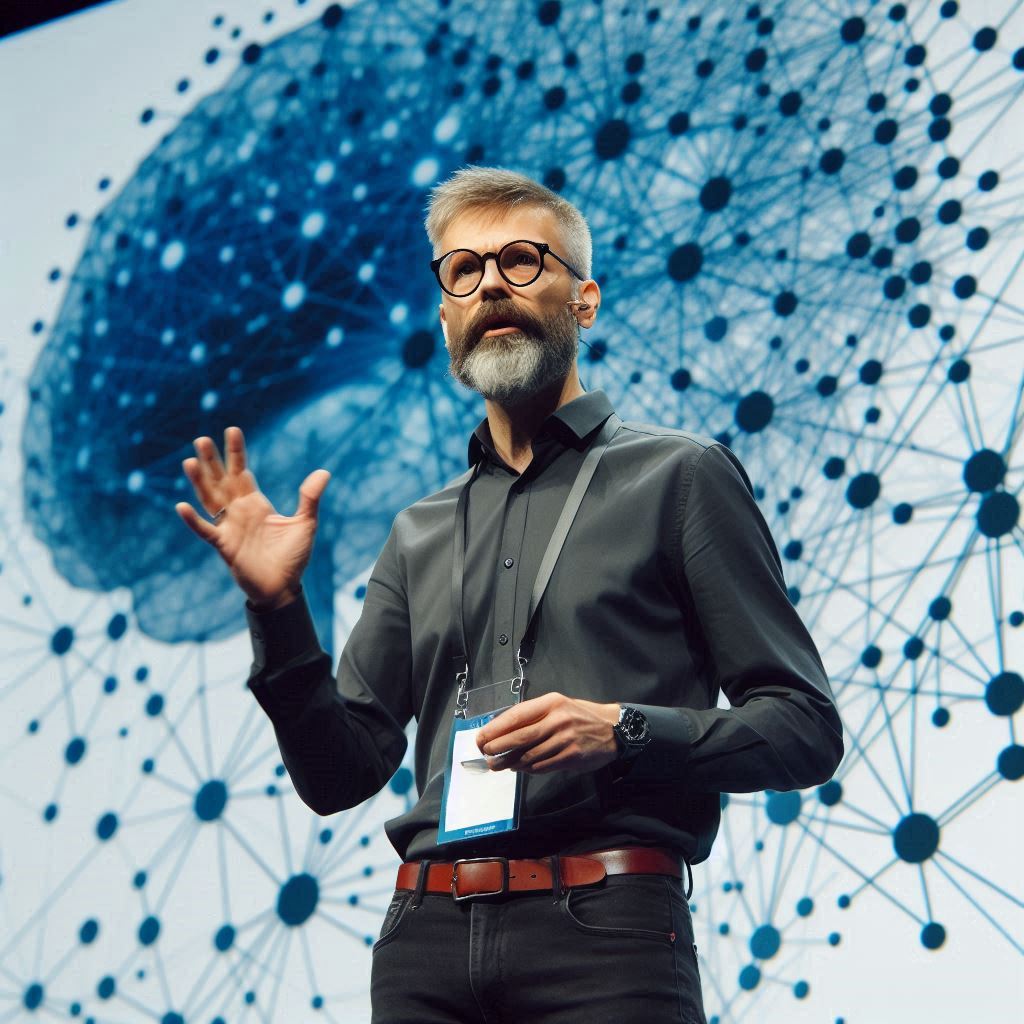Introduction
Brief overview of the current educational landscape.
The current educational landscape faces numerous challenges.
Standardized testing often fails to meet diverse student needs.
Traditional teaching methods can leave many learners behind.
Students benefit from tailored approaches that address their unique strengths and weaknesses.
Personalized education has gained traction as a vital approach in today’s classrooms.
Explanation of personalized education and its importance.
Personalized education emphasizes individualized learning experiences.
It recognizes that each student learns differently and requires distinct support.
By focusing on personal learning paths, educators can foster greater engagement.
Furthermore, personalized education enhances motivation and improves retention.
Students who feel seen and supported perform better academically.
Introduction to adaptive learning systems as a solution.
Adaptive learning systems emerge as a powerful solution to these challenges.
These systems utilize technology to tailor learning experiences for each student.
By analyzing individual performance data, they identify knowledge gaps and adjust content accordingly.
This approach allows for real-time feedback and continuous improvement.
Adaptive learning systems create a dynamic learning environment where students can thrive.
Employing adaptive learning systems promotes student autonomy and self-paced learning.
Each learner can progress through material at their own speed.
This model supports mastery learning, where students achieve a solid understanding before moving forward.
With adaptive learning, the focus shifts from traditional teaching methods to personalized pathways.
As technology evolves, so does the potential for personalized education.
Educational institutions increasingly turn to innovative tools to enhance learning experiences.
Adaptive learning systems enable educators to track progress and intervene when needed.
This data-driven approach empowers teachers to make informed decisions.
Ultimately, these systems pave the way for more effective and inclusive education.
Therefore, personalized education is essential for fostering student success.
Adaptive learning systems represent a vital advancement in this field.
By embracing technology and individual learning paths, educators can create engaging classrooms.
The future of education hinges on our ability to adapt and personalize learning.
Let’s embrace this exciting transformation together.
Understanding Adaptive Learning Systems
Definition of Adaptive Learning Systems
Adaptive learning systems tailor educational experiences to meet individual learner needs.
These systems adjust content and assessments based on a student’s performance.
By using data-driven approaches, they create personalized learning pathways.
This flexibility enhances student engagement and facilitates mastery of concepts.
In an adaptive learning system, technology plays a crucial role.
It gathers information about the student’s learning style and pace.
We Design & Develop Websites, Android & iOS Apps
Looking to transform your digital presence? We specialize in creating stunning websites and powerful mobile apps for Android and iOS. Let us bring your vision to life with innovative, tailored solutions!
Get Started TodayEducators can also use these insights to inform instruction strategies.
Key Principles and Technologies Behind Adaptive Learning
Understanding adaptive learning requires grasping its core principles.
Here are some key concepts:
- Personalization: Tailored learning experiences fit individual student needs.
- Data analytics: Continuous data collection informs real-time adjustments to the curriculum.
- Feedback loops: Instant feedback helps learners understand mistakes and improve.
- Scaffolding: Content complexity varies according to student progress.
- Engagement: Interactive and diverse learning modes capture student interest.
Technology plays a pivotal role in adaptive learning systems.
Some common technologies include:
- Artificial Intelligence: AI algorithms analyze data and optimize learning paths.
- Learning Management Systems (LMS): LMS platforms facilitate personalized content delivery.
- Learning Analytics: This tool measures learner performance through metrics and data visualization.
- Gamification: Game-like elements enhance motivation and engagement.
- Mobile Learning: Accessibility through mobile devices supports learning anytime, anywhere.
Differences Between Adaptive Learning and Traditional Education Methods
Adaptive learning contrasts sharply with traditional educational methods.
Understanding these differences clarifies how adaptive systems improve learning.
Comparison Overview
- One-size-fits-all vs. Personalization: Traditional methods use a uniform approach. Adaptive learning tailors to individual needs.
- Static Curriculum vs. Dynamic Content: Traditional curriculums are fixed. Adaptive systems evolve based on learner progress and feedback.
- Passive vs. Active Learning: Traditional classrooms focus on memorization. Adaptive learning emphasizes problem-solving and critical thinking.
- Delayed Feedback vs. Immediate Feedback: Traditional feedback comes after assessments. Adaptive systems provide real-time feedback during learning.
- Group Pacing vs. Individual Pacing: Traditional methods advance all students together. Adaptive models let learners progress based on readiness.
Outcomes and Benefits
- Enhanced Performance: Adaptive learning often yields better information retention and skill application.
- Increased Confidence: Students tackle challenges independently, boosting self-confidence.
- Personalized Learning Pathways: Learners take ownership of their education, increasing motivation.
- Targeted Support: Adaptive systems quickly identify and address learning gaps. Traditional methods may overlook specific needs.
- Engagement for Fast Learners: Adaptive systems allow rapid advancement, keeping engaged learners challenged.
Educator Implications
- Facilitator Role: Teachers guide learning based on data insights and provide personalized support.
- Professional Development: Training helps educators effectively use adaptive technologies.
Challenges
- Cost: Technology and training involve significant investment.
- Resistance: Some educators may resist new practices due to familiarity with traditional methods.
Adaptive learning systems offer flexible, personalized education that aligns with modern goals.
They promise significant benefits for students and educators, preparing them for future success.
Embracing adaptive learning transforms education, making it more responsive and effective.
Read: Future of Digital Education: Impact of 5G Technology
The Role of Artificial Intelligence in Adaptive Learning
Artificial Intelligence (AI) powers adaptive learning systems, enabling significant shifts in education.
By analyzing data, AI personalizes the learning experience.
This process creates a tailored environment where students thrive.
How AI Drives Adaptive Learning Systems
AI enhances adaptive learning systems through several key mechanisms:
- Data-Driven Insights: AI analyzes vast amounts of data quickly. It identifies patterns that human educators might miss.
This analysis allows educators to adapt instruction based on each student’s needs. - Real-Time Adjustments: AI can change content and learning paths in real-time. As students engage with materials, AI tracks their progress.
When a student struggles, the system provides additional resources or adjusts difficulty levels. - Enhanced Engagement: AI personalizes learning experiences to keep students engaged. It introduces gamified elements and interactive content tailored to individual preferences.
By maintaining interest, students are more likely to persist in their studies. - Predictive Analytics: AI can forecast student success. By assessing past performance, AI predicts future outcomes, allowing educators to intervene early.
This proactive approach enhances the chances of student success.
These mechanisms showcase how AI creates a responsive educational environment.
Students benefit from tailored instruction that meets their unique needs.
Teachers gain insights that enhance their ability to support learners effectively.
Examples of AI Algorithms Used in Personalization
Various AI algorithms significantly contribute to personalized learning experiences:
- Recommendation Systems: Similar to Netflix or Spotify, educational platforms use recommendation algorithms.
These suggest resources based on previous interactions and preferences. Learners receive tailored content that enhances learning. - Natural Language Processing (NLP): NLP enables systems to understand and process human language.
This technology can assess student responses in free-text answers. Using NLP, systems provide personalized feedback that guides student learning. - Clustering Algorithms: Clustering groups students based on similar learning behaviors and needs.
This approach allows educators to target instructional strategies effectively. Educators can create small group instruction that caters to those specific groups. - Adaptive Testing Algorithms: These algorithms adjust the difficulty of assessments in real-time.
When a student answers a question correctly, the algorithm presents a harder question. Conversely, if a student struggles, the questions become easier.
These AI algorithms enhance the personalization of learning materials.
They provide students with resources that are both relevant and challenging.
Consequently, students experience an educational journey that aligns closely with their abilities and interests.
The Impact of Machine Learning on Student Progress Tracking
Machine learning plays a pivotal role in monitoring and enhancing student progress.
This technology provides benefits that reshape educational practices:
- Continuous Improvement: Machine learning algorithms continuously improve based on new data.
As more students interact with the system, the accuracy of assessments grows. This continual refinement aids in recognizing student needs more effectively. - Identifying Learning Gaps: Machine learning identifies competencies where students struggle. By analyzing patterns in student data, it flags areas needing more focus.
This helps teachers target their interventions strategically. - Dynamic Feedback: Systems equipped with machine learning deliver timely feedback to students. Instead of waiting for end-of-term evaluations, learners receive instant insights.
This immediate feedback fosters a growth mindset and encourages continuous learning. - Personal Learning Plans: Machine learning tools can create customized learning plans. Based on ongoing assessments, these plans evolve as students progress.
This individualized approach fosters engagement and accountability.
The integration of machine learning in adaptive learning systems transforms education.
It allows stakeholders to make informed decisions based on data-driven insights.
As a result, students receive the support they need to succeed academically.
The role of artificial intelligence in adaptive learning systems is transformative.
AI not only personalizes education but also enhances student engagement and success.
By utilizing various algorithms, educators can tailor learning experiences to meet individual needs.
As technology continues to advance, the potential for AI in education will grow.
Adaptive learning systems will become even more effective at supporting diverse learners.
Through ongoing development and implementation, the future of personalized education looks promising.
Read: Educational Apps for Personalized Learning Experiences: Best Picks
Benefits of Adaptive Learning Systems
Adaptive learning systems offer numerous advantages that transform the educational experience for both students and educators.
We Design & Develop Websites, Android & iOS Apps
Looking to transform your digital presence? We specialize in creating stunning websites and powerful mobile apps for Android and iOS. Let us bring your vision to life with innovative, tailored solutions!
Get Started TodayThese systems adjust to individual learning styles and paces, creating more effective and personalized learning paths. Below are some key benefits:
Enhanced Engagement Through Individualized Learning Paths
One of the primary advantages of adaptive learning systems is their ability to increase student engagement.
Traditional teaching methods often rely on a one-size-fits-all approach.
This approach can leave many students disengaged and frustrated.
Adaptive systems provide personalized learning pathways tailored to each student’s unique needs.
Students feel more invested in their learning journeys when they see the content tailored just for them.
They can progress at their own pace, revisiting challenging topics or advancing quickly through material they grasp well.
Such flexibility fosters a sense of ownership over their education.
Additionally, adaptive systems often include interactive features that make learning more enjoyable.
Gamification elements, immediate feedback, and varied content formats can keep students interested and motivated.
As a result, students are more likely to stay on task and actively participate in their lessons.
Improved Learning Outcomes and Mastery of Subjects
Adaptive learning systems contribute significantly to improved learning outcomes.
By personalizing content delivery, these systems can address specific knowledge gaps that students may have.
Instead of moving on to new material before mastering a concept, students can achieve mastery at their own pace.
Research shows that when students engage in mastery learning, they often outperform their peers in standardized assessments.
Tailored solutions focus on ensuring students truly understand the material before progressing.
This approach can lead to deeper comprehension and long-lasting retention of knowledge.
Moreover, adaptive learning systems track student progress in real-time.
Educators can use this data to identify trends and areas needing attention.
This timely feedback allows educators to adjust their teaching strategies based on individual student performance.
As a result, both students and teachers benefit from enhanced instructional effectiveness.
Accessibility for Diverse Learning Needs and Styles
Adaptive learning systems excel at catering to diverse learning needs and styles.
Every student has unique challenges and strengths; adaptive systems embrace this diversity.
Such inclusivity is vital in today’s increasingly multicultural classrooms.
Students with learning disabilities, language barriers, or different cognitive styles often struggle in traditional settings.
Adaptive learning provides alternative pathways to understand complex concepts.
This flexibility ensures that all students have equal opportunities to succeed.
Additionally, adaptive systems can accommodate various learning preferences.
Some students learn better through visual aids, while others may prefer auditory or kinesthetic learning methods.
By offering multiple formats of content delivery, these systems cater to each learner’s preferred style.
Key Features of Adaptive Learning Systems
To fully appreciate the benefits, it’s essential to understand the core features that make adaptive learning systems effective:
Continuous Assessment
Adaptive learning systems continuously assess student performance through quizzes, tests, and interactive activities.
This ongoing evaluation helps the system adjust the learning path dynamically based on real-time data.
Personalized Content
These systems curate personalized recommendations for each student.
They analyze previous performance and suggest relevant resources that align with identified needs and strengths.
We Design & Develop Websites, Android & iOS Apps
Looking to transform your digital presence? We specialize in creating stunning websites and powerful mobile apps for Android and iOS. Let us bring your vision to life with innovative, tailored solutions!
Get Started TodayReal-Time Feedback
Students receive immediate feedback on their assessments and exercises.
Such instant reinforcement helps students correct mistakes and encourages learning from errors.
Scalable Implementation
Adaptive learning systems can be implemented across various educational settings.
They are suitable for classrooms, online courses, and corporate training.
Their scalability ensures accessibility for a wide range of learners.
Data-Driven Insights
These systems generate actionable insights for educators based on aggregated student data.
Teachers can analyze performance trends and adapt their instructional methods accordingly.
Challenges and Considerations
While adaptive learning systems present numerous benefits, there are challenges to consider:
Initial Setup and Training
The implementation of adaptive learning systems requires initial investments in technology and stafftraining.
Educators need to feel confident using these tools to maximize their potential.
Data Privacy Concerns
Adaptive systems collect and analyze data, raising questions about student privacy.
Institutions must ensure data protection and comply with regulations to safeguard student information.
Equity of Access
All students must have equal access to technology to benefit from adaptive learning systems.
Unequal access can widen the achievement gap among students from different socioeconomic backgrounds.
Adaptive learning systems stand at the forefront of personalized education, offering transformative benefits.
Enhanced engagement, improved learning outcomes, and accessibility for diverse needs make these systems vital for modern education.
Despite challenges, the potential of adaptive learning is immense in creating a more tailored educational experience.
As technology continues to evolve, adaptive learning will play an increasingly crucial role in shaping the future of education.
Embracing this innovative approach will likely yield significant benefits for students, educators, and the education system as a whole.
Read: How VR is Transforming Online Learning for Students

Challenges and Limitations of Adaptive Learning
Adaptive learning systems offer promising opportunities for personalized education.
However, these systems also face significant challenges.
Understanding these challenges is crucial for educators, policymakers, and developers.
We will examine technical challenges, data privacy issues, teacher training needs, classroom integration, and misconceptions regarding fully automated education.
Technical Challenges
Implementing adaptive learning systems involves several technical challenges.
These challenges can hinder their effectiveness. Here are some key issues:
- System Integration: Adaptive learning platforms need to work seamlessly with existing educational technologies. Integrating various software tools can be complex and costly.
- Data Scalability: As the number of users grows, the system must handle vast amounts of data efficiently. This can strain infrastructure resources if not designed properly.
- Algorithm Accuracy: The success of adaptive learning hinges on algorithms. If these algorithms are not accurate, they may misinterpret student needs.
- Real-Time Feedback: Adaptive systems must provide instant feedback. Achieving real-time responsiveness requires sophisticated programming and robust data processing capabilities.
- Technical Support: Schools must ensure ongoing support for adaptive technologies. Many educators feel overwhelmed by the complexities of new systems.
These technical challenges necessitate careful planning and investment in resources.
Schools and developers must collaborate effectively to create useful adaptive learning solutions.
Data Privacy Concerns
Data privacy remains a significant concern in adaptive learning systems.
Collecting and analyzing student data raises ethical and legal issues.
Key concerns include:
- Student Consent: Schools must ensure that students and parents understand data collection. Consent must be informed and freely given.
- Data Security: Educational institutions must protect sensitive data against breaches. Implementing robust security measures is essential for safeguarding student information.
- Anonymity: Maintaining student anonymity while collecting data is critical. Mismanagement of personal information can lead to serious repercussions.
- Compliance with Regulations: Schools must comply with laws like FERPA and GDPR. Understanding and adhering to these regulations ensures transparency and trust.
- Data Usage Limitations: Organizations must clearly outline how they use collected data. Misuse of data can damage reputations and student relationships.
To address these concerns, schools should develop strict data governance policies.
They must prioritize student privacy while utilizing adaptive learning technologies.
Teacher Training and Classroom Integration
Effective implementation of adaptive learning systems requires comprehensive teacher training.
Educators play a crucial role in leveraging these technologies.
We Design & Develop Websites, Android & iOS Apps
Looking to transform your digital presence? We specialize in creating stunning websites and powerful mobile apps for Android and iOS. Let us bring your vision to life with innovative, tailored solutions!
Get Started TodayConsider the following training needs:
- Understanding Adaptive Learning: Teachers need to grasp how adaptive learning works. They must familiarize themselves with fundamental concepts and strategies.
- Using Data for Instruction: Training must help teachers analyze data effectively. Educators should learn to use insights from adaptive systems to enhance their teaching.
- Technology Comfort Level: Many teachers may feel intimidated by new technologies. Providing adequate training helps build confidence and competence.
- Classroom Management Techniques: Educators need strategies for integrating adaptive learning within the classroom. Training must include practical tips for maintaining engagement.
- Collaboration Skills: Teachers should collaborate with peers, tech experts, and administrators. Teamwork promotes innovation and shared knowledge in adaptive learning.
Continuing professional development is essential for teacher training.
Schools must commit to supporting educators in their journey with adaptive learning systems.
Misconceptions About Fully Automated Education
There is a common misconception that adaptive learning represents fully automated education.
This misunderstanding can undermine the potential of these systems.
Here are some critical points to consider:
- Role of Educators: Adaptive learning does not replace teachers. Instead, it enhances the teacher’s role, allowing them to focus on personalized instruction.
- Human Interaction: Quality education relies on interaction. Adaptive learning systems provide support but cannot replicate the human touch in teaching.
- Collaboration Over Automation: The best adaptive learning experiences include collaboration between students and educators. This interaction fosters engagement and deeper learning.
- Ongoing Assessment: Adaptive systems evolve through continuous assessment and feedback. They support teachers in making informed decisions about student progress.
- Critical Thinking Skills: Learning is more than absorbing information. Adaptive learning encourages critical thinking and problem-solving, which require human guidance.
Addressing these misconceptions is vital for embracing adaptive learning.
Educators, policymakers, and the public must come together to support a balanced educational model.
In fact, adaptive learning systems present challenges that necessitate attention.
Technical difficulties and data privacy issues must be addressed.
Comprehensive teacher training and classroom integration are essential for success.
Finally, combating misconceptions surrounding automation will help realign education with its core values.
Through collaborative efforts, we can harness the potential of adaptive learning while mitigating its challenges.
Ultimately, we must invest in a thoughtful and balanced approach to personalized education.
Read: AI Tools Revolutionizing Modern Education: Top 10 in 2024
Case Studies of Successful Implementation
Case Study: Summit Public Schools
Summit Public Schools adopted adaptive learning systems across their middle and high schools.
They integrated personalized learning platforms into their curriculum.
This approach allowed students to work at their own pace and receive tailored support.
Improvements in Student Performance
- Test Scores: Data showed a 15% increase in standardized test scores.
- Engagement: Students exhibited a 20% rise in engagement and participation.
- Graduation Rates: Graduation rates improved by 10% over three years.
Educator and Student Testimonials
- Educator: “Adaptive learning has transformed how we teach. It allows us to address individual needs effectively.” – Emma Martinez, Teacher.
- Student: “I love the flexibility. I can learn at my own pace and get help when I need it.” – Alex Brown, Student.
Case Study: Arizona State University
Arizona State University implemented adaptive learning in its online courses.
They used advanced algorithms to personalize the learning experience for students.
This initiative aimed to improve outcomes for a diverse student body.
Improvements in Student Performance
- Completion Rates: Online course completion rates increased by 25%.
- Course Grades: Average grades improved by 12%.
- Retention Rates: Student retention rates climbed by 18%.
Educator and Student Testimonials
- Educator: “The adaptive system has been a game-changer. It helps us support each student’s unique learning journey.” – Dr. Jane Smith, Professor.
- Student: “The personalized feedback has been incredibly helpful. I feel more confident in my studies.” – Maria Lopez, Student.
Case Study: The Khan Academy
The Khan Academy implemented adaptive learning tools to enhance its online educational platform.
They introduced features that adapt to students’ strengths and weaknesses.
Improvements in Student Performance
- Skill Mastery: Students demonstrated a 30% improvement in mastering math concepts.
- Learning Gains: Average learning gains increased by 22% across subjects.
- User Engagement: Platform engagement grew by 40% year-over-year.
Educator and Student Testimonials
- Educator: “The adaptive tools have significantly improved student outcomes. It’s a powerful way to personalize learning.” – Michael Johnson, Educator.
- Student: “Khan Academy’s adaptive features make learning more interactive and effective. I see real progress.” – Sarah Lee, Student.
These case studies highlight the transformative impact of adaptive learning systems.
Schools and institutions report improved student performance, higher engagement, and greater satisfaction.
Educators and students alike recognize the benefits of personalized learning.
As adaptive learning continues to evolve, its potential to enhance education remains promising.
Future Trends in Adaptive Learning Systems
Adaptive learning systems represent a transformative approach to education.
These systems leverage technology to tailor learning experiences to individual student needs.
As we look towards the future, several key trends will shape the evolution of adaptive learning systems.
Innovations on the Horizon
The next decade will see remarkable innovations in adaptive learning technologies.
Institutions and educators will increasingly adopt these cutting-edge tools.
They will enhance student engagement and optimize learning outcomes.
Below are some notable innovations expected to emerge:
- Virtual Reality (VR): VR technology will immerse students in realistic environments. This will deepen their understanding of complex concepts.
Imagine exploring the human body or ancient civilizations firsthand. - Augmented Reality (AR): AR overlays digital information onto the physical world. This will enable interactive learning experiences.
Students could dissect a virtual frog, for instance, with real-time feedback. - Gamification: Gamified experiences will motivate students. Elements like points, badges, and leaderboards will make learning fun.
This dynamic environment will encourage students to excel. - Artificial Intelligence (AI): AI will enhance personalization. Systems can analyze student progress and adjust content accordingly.
This ensures students work at their optimal pace and skill level. - Cloud Computing: Cloud platforms will allow easy access to resources. Students will be able to collaborate across geographical boundaries. This fosters a global learning community.
The Role of Data Analytics
Data analytics will play a crucial role in the continual improvement of adaptive learning systems.
We Design & Develop Websites, Android & iOS Apps
Looking to transform your digital presence? We specialize in creating stunning websites and powerful mobile apps for Android and iOS. Let us bring your vision to life with innovative, tailored solutions!
Get Started TodayAs systems gather more data, insights will become richer and more valuable.
Educators will rely on these insights to inform instruction.
Here are some key aspects of data analytics in adaptive learning:
- Real-Time Feedback: Immediate feedback will drive student improvement. Adaptive systems can analyze how students interact with content.
This helps identify areas needing additional support or enrichment. - Predictive Analytics: Predictive algorithms will forecast student performance. By analyzing past behaviors and outcomes, systems can predict struggles.
This allows for proactive interventions. - Learning Path Optimization: Data will inform personalized learning paths. Systems will create tailored experiences based on individual progress.
Each student’s journey will become more effective and satisfying. - Adaptive Assessment: Assessments will evolve with student performance. Systems can adjust question difficulty in real-time, ensuring a challenge that matches skill levels.
This approach minimizes frustration and maximizes engagement. - Content Recommendation: Adaptive systems will continuously recommend resources.
Based on the analysis of strengths and weaknesses, systems will suggest articles, videos, or exercises. This ensures relevant and targeted learning experiences.
Predictions on the Evolution of Personalized Education
The landscape of personalized education will dramatically change within the next decade.
Here are some predictions regarding its evolution:
- Widespread Adoption: Educational institutions will increasingly adopt adaptive technologies. From K-12 schools to universities, personalized learning will become the norm.
- Increased Accessibility: Adaptive learning will democratize education. Students from diverse backgrounds will gain access to tailored learning experiences.
This will reduce learning gaps and enhance equity. - Focus on Soft Skills: Future adaptive systems will target both academic and soft skills. Emotional intelligence, teamwork, and communication will receive greater emphasis in curricula.
- Lifetime Learning: As society rapidly evolves, ongoing education will become necessary. Adaptive learning systems will cater to professionals seeking to upskill or reskill constantly.
- Mobile Learning: Learning will increasingly take place on mobile devices. Adaptive systems will optimize content for smartphones and tablets. Learning will happen anytime, anywhere.
- Stronger Community Engagement: Partnerships between educational institutions and communities will grow.
Adaptive learning systems will encourage collaborations with local businesses and organizations. This will provide real-world, relevant learning experiences.
As we look ahead, the integration of these innovations will redefine how we approach education.
Adaptive learning systems will personalize experiences, allowing students to reach their fullest potential.
The role of data analytics will ensure that these systems continually evolve and improve.
Education will become more inclusive, accessible, and effective, tailored to fit the needs of every learner.
In essence, the future of personalized education will revolve around adaptive learning systems.
By harnessing the power of technology, data, and community, we can create vibrant educational ecosystems.
The possibilities are limitless, and the impact will be profound, fostering a generation of engaged, informed, and capable individuals.
Conclusion
Recap of the significance of adaptive learning systems.
Adaptive learning systems significantly transform education.
They offer personalized paths for every student.
This customization enhances learning experiences and engagement.
Moreover, these systems provide timely feedback.
Immediate feedback allows students to correct mistakes and deepen understanding.
Final thoughts on fostering a personalized and engaging learning environment.
These technologies also empower educators. Teachers can monitor individual progress easily.
They can identify struggling students swiftly.
This insight enables targeted interventions, fostering a more inclusive environment.
Additionally, adaptive systems save valuable teaching time.
Educators can focus on mentorship and creativity rather than admin tasks.
As we look to the future, the importance of adaptive learning cannot be overstated.
It promotes equity in education by accommodating diverse learning styles.
Every student deserves an opportunity to succeed.
Personalized approaches ensure that no one is left behind.
To create a vibrant learning environment, we must embrace adaptive solutions.
Students thrive when their unique needs are recognized.
We can make education more engaging and effective by leveraging technology.
Call to action for educators, policymakers, and technologists to embrace adaptive solutions for the future of education.
Educators, policymakers, and technologists must unite.
Collaboration is essential to shape the future of education.
Together, we can develop comprehensive strategies for implementing adaptive learning.
It’s time to prioritize tools that facilitate personalized education and drive student success.
Adaptive learning systems represent a significant evolution in education.
By embracing these innovations, we can create a more dynamic and responsive learning landscape.
We Design & Develop Websites, Android & iOS Apps
Looking to transform your digital presence? We specialize in creating stunning websites and powerful mobile apps for Android and iOS. Let us bring your vision to life with innovative, tailored solutions!
Get Started TodayLet us commit to fostering a personalized, engaging, and inclusive educational experience for all learners.
Join the movement towards adaptive learning.
Explore and implement these systems in your classrooms and institutions.
The future of education awaits, and it begins with you.
Before You Go…
Hey, thank you for reading this blog post to the end. I hope it was helpful. Let me tell you a little bit about Nicholas Idoko Technologies.
We help businesses and companies build an online presence by developing web, mobile, desktop, and blockchain applications.
We also help aspiring software developers and programmers learn the skills they need to have a successful career.
Take your first step to becoming a programming expert by joining our Learn To Code academy today!
Be sure to contact us if you need more information or have any questions! We are readily available.
Put Your Tech Company on the Map!
Get featured on Nicholas Idoko’s Blog for just $200. Showcase your business, boost credibility, and reach a growing audience eager for tech solutions.
Publish Now










